 Set 500 years in the future, this story by Charles Beaumont envisions a dystopian world where homosexuality is the norm, heterosexuality is not only frowned upon but illegal, and children are tube-born and machine-nursed. Although the male protagonist is strongly attracted to a young woman, both struggle to deal with physical contact due to their social conditioning. As they cannot show affection in public, she disguises herself and they meet in a sleazy “men only” bar. In the end, she gets what she came for and his concerns are resolved. Themes include oppression, prejudice, sexual orientation, depravity.
Set 500 years in the future, this story by Charles Beaumont envisions a dystopian world where homosexuality is the norm, heterosexuality is not only frowned upon but illegal, and children are tube-born and machine-nursed. Although the male protagonist is strongly attracted to a young woman, both struggle to deal with physical contact due to their social conditioning. As they cannot show affection in public, she disguises herself and they meet in a sleazy “men only” bar. In the end, she gets what she came for and his concerns are resolved. Themes include oppression, prejudice, sexual orientation, depravity.
Archives
Speech Sounds
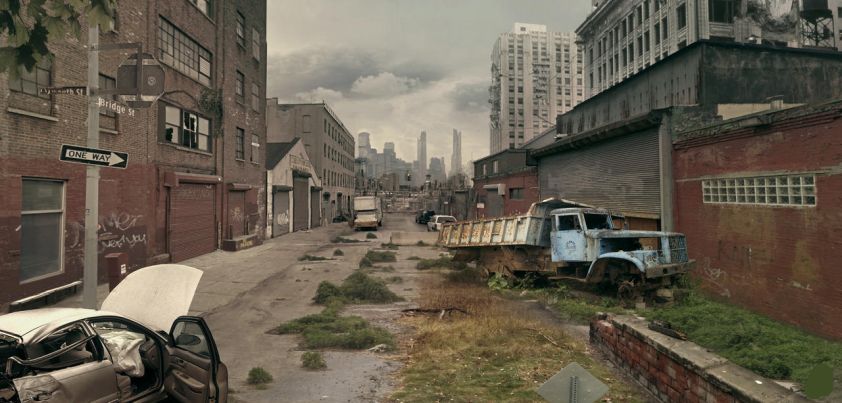 This story from Octavia Butler takes place in a violent, post-apocalyptic world. A virus has killed billions and left most survivors unable to speak, read, write or understand spoken language. Governments and the corporate world have collapsed, there are no police or community services, fuel is scarce. People must fend for themselves. The protagonist, whose husband and children fell to the virus, is contemplating suicide. The desperate woman finds and cruelly loses a new lover, but in the process discovers a renewed purpose in life. Themes: the importance of language, isolation, loneliness, fear, violence, hope. More…
This story from Octavia Butler takes place in a violent, post-apocalyptic world. A virus has killed billions and left most survivors unable to speak, read, write or understand spoken language. Governments and the corporate world have collapsed, there are no police or community services, fuel is scarce. People must fend for themselves. The protagonist, whose husband and children fell to the virus, is contemplating suicide. The desperate woman finds and cruelly loses a new lover, but in the process discovers a renewed purpose in life. Themes: the importance of language, isolation, loneliness, fear, violence, hope. More…
Usher II
 First published in 1950 as Carnival of Madness, this story by Ray Bradbury is also included in his anthologies The Martian Chronicles and The Illustrated Man. A wealthy book-lover, angry about destruction of his extensive library because of fantasy and horror story censorship on Earth, builds a look-alike version of Edgar Allan Poe’s House of Usher on Mars. He invites prominent book-banners to a party at the house, where they meet different Poe-inspired ends. Themes: censorship vs. personal freedom, the importance of speculative fiction, the danger of excess political correctness, zealotry (in this case, taking a protest too far!) More…
First published in 1950 as Carnival of Madness, this story by Ray Bradbury is also included in his anthologies The Martian Chronicles and The Illustrated Man. A wealthy book-lover, angry about destruction of his extensive library because of fantasy and horror story censorship on Earth, builds a look-alike version of Edgar Allan Poe’s House of Usher on Mars. He invites prominent book-banners to a party at the house, where they meet different Poe-inspired ends. Themes: censorship vs. personal freedom, the importance of speculative fiction, the danger of excess political correctness, zealotry (in this case, taking a protest too far!) More…
The Red Bow
 This dystopian story from George Saunders is often referred to as a metaphor for the post 9-11 Afghan and Iraq Wars. It is also an allegory of a much older, far-reaching problem: ethnic cleansing. A small group of dogs (people) is seen as a direct threat and are eliminated. After this, paranoia sets in. All dogs and cats (minority groups) become suspect and must also be removed. The dictatorial rise of Uncle Max by exploiting fear of the perceived “enemy” is also symbolic of the way many world leaders have come to power. Themes: tragedy, grief, paranoia, protection, authoritarianism. More…
This dystopian story from George Saunders is often referred to as a metaphor for the post 9-11 Afghan and Iraq Wars. It is also an allegory of a much older, far-reaching problem: ethnic cleansing. A small group of dogs (people) is seen as a direct threat and are eliminated. After this, paranoia sets in. All dogs and cats (minority groups) become suspect and must also be removed. The dictatorial rise of Uncle Max by exploiting fear of the perceived “enemy” is also symbolic of the way many world leaders have come to power. Themes: tragedy, grief, paranoia, protection, authoritarianism. More…
The Machine Stops
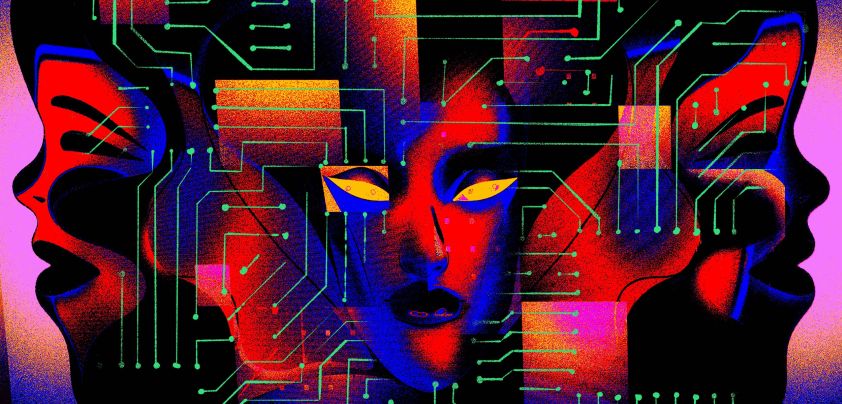 This Science Fiction classic by E. M. Forster explores the role of “the machine” in the rise and fall of a future dystopian civilization. After developing the machine the population grow dependent upon it, become controlled by it, worship it, and are ultimately destroyed by it. In the process, they regress in terms of human interaction, family relationships, physical strength, critical thinking ability and free will. Only the “homeless”, who have no access to the machine, survive. The major theme is the danger of over-reliance on and losing control of technology. Other themes: environmental degradation, religious faith, freedom, rebellion. More…
This Science Fiction classic by E. M. Forster explores the role of “the machine” in the rise and fall of a future dystopian civilization. After developing the machine the population grow dependent upon it, become controlled by it, worship it, and are ultimately destroyed by it. In the process, they regress in terms of human interaction, family relationships, physical strength, critical thinking ability and free will. Only the “homeless”, who have no access to the machine, survive. The major theme is the danger of over-reliance on and losing control of technology. Other themes: environmental degradation, religious faith, freedom, rebellion. More…
The Lottery
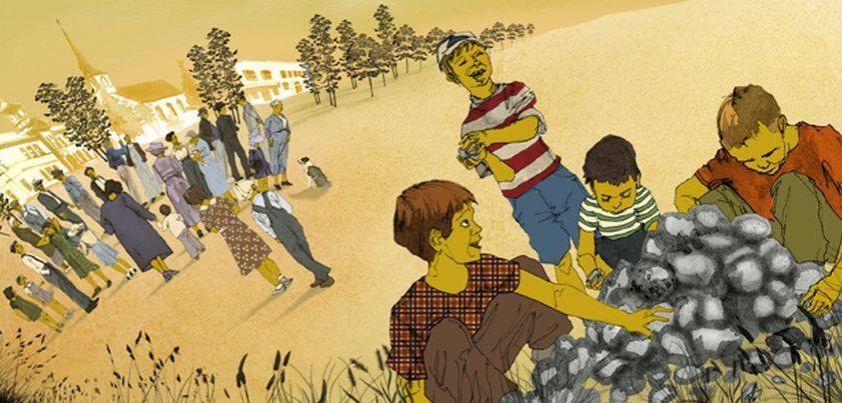 Shirley Jackson had no idea of the angry reaction The Lottery would receive when it first appeared in 1948. It tells how each year the otherwise ‘normal’ people in a small American farming town perform a gruesome ritual to ensure a favorable growing season. The major theme is how herd or mob mentality can drive people to do things they would never consider individually. Other themes include dystopia, gender roles, violence and cruelty (human sacrifice), acceptance (the blind following of tradition), and man’s inhumanity to man (the potential for evil in all of us). More…
Shirley Jackson had no idea of the angry reaction The Lottery would receive when it first appeared in 1948. It tells how each year the otherwise ‘normal’ people in a small American farming town perform a gruesome ritual to ensure a favorable growing season. The major theme is how herd or mob mentality can drive people to do things they would never consider individually. Other themes include dystopia, gender roles, violence and cruelty (human sacrifice), acceptance (the blind following of tradition), and man’s inhumanity to man (the potential for evil in all of us). More…
Repent, Harlequin! Said the Ticktockman
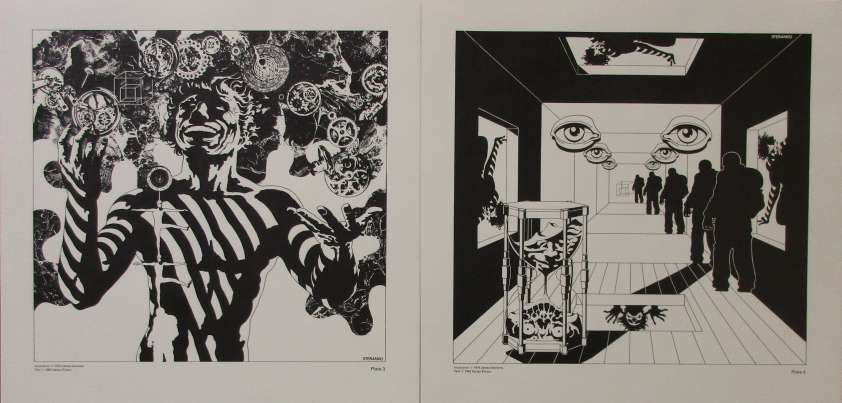 This story by Harlan Ellison takes a satirical look at the way people can become slaves of time. In a future dystopian world, everyone and everything must be on time. The Master Timekeeper (aka the Ticktockman) is responsible for policing this. He has a special power: if someone is late to work or causes something to be delayed, that person has the lost time deducted from their lifespan. Only one man stands against him: a disruptive rebel who calls himself the Harlequin. When the Harlequin is finally caught, the Ticktockman goes to great lengths to try to make him repent. More…
This story by Harlan Ellison takes a satirical look at the way people can become slaves of time. In a future dystopian world, everyone and everything must be on time. The Master Timekeeper (aka the Ticktockman) is responsible for policing this. He has a special power: if someone is late to work or causes something to be delayed, that person has the lost time deducted from their lifespan. Only one man stands against him: a disruptive rebel who calls himself the Harlequin. When the Harlequin is finally caught, the Ticktockman goes to great lengths to try to make him repent. More…
In the Penal Colony
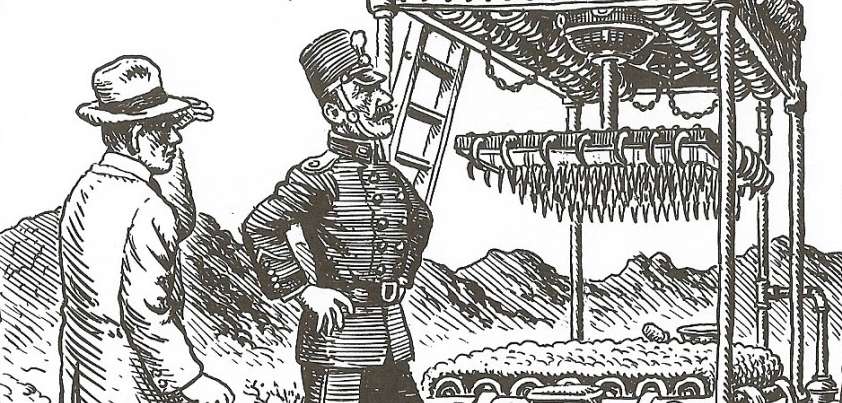 This Franz Kafka story is a study on what can happen when you put a psychopath in charge of a process (or country) in which they have unfettered power and can make decisions over life and death with impunity. The story deals with some heavy themes: justice, due process, capital punishment, torture, sadistic voyeurism, and the difficulty of institutional change (even if for the good!). Central to all this is the “machine”, which seems to know that its time has come and chooses to self-destruct along with the only person left who cares about it. More…
This Franz Kafka story is a study on what can happen when you put a psychopath in charge of a process (or country) in which they have unfettered power and can make decisions over life and death with impunity. The story deals with some heavy themes: justice, due process, capital punishment, torture, sadistic voyeurism, and the difficulty of institutional change (even if for the good!). Central to all this is the “machine”, which seems to know that its time has come and chooses to self-destruct along with the only person left who cares about it. More…
Bloodchild
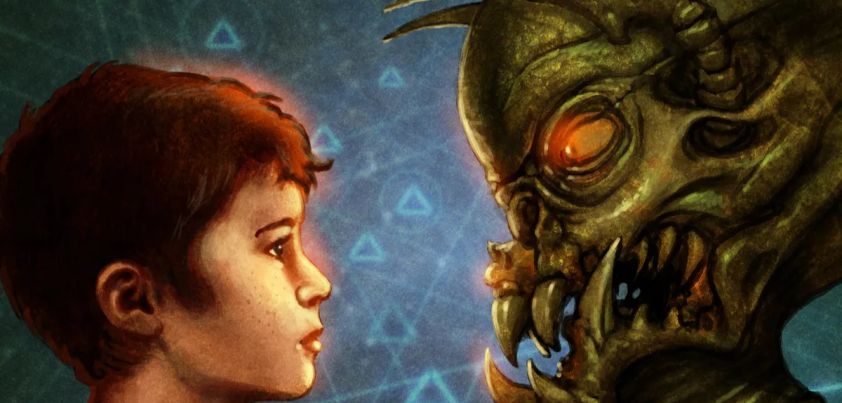 Octavia Butler described this as her “pregnant man” story. A colony of humans fleeing some kind of trouble takes shelter on a planet inhabited by giant, insect-like beings. The insects (Tlics) develop a symbiotic relationship with the humans (Terrans). In exchange for protection, adolescent boys are allocated to Tlic families, where they must incubate a Tlic mother’s eggs. The eggs are implanted in their abdomen, necessitating a rather gruesome but usually successful delivery process. Understandably, the Terran protagonist who has just reached maturity is having second thoughts about this. Themes: exploitation vs. interdependence, gender roles, fear, sacrifice vs. jealousy, love. More…
Octavia Butler described this as her “pregnant man” story. A colony of humans fleeing some kind of trouble takes shelter on a planet inhabited by giant, insect-like beings. The insects (Tlics) develop a symbiotic relationship with the humans (Terrans). In exchange for protection, adolescent boys are allocated to Tlic families, where they must incubate a Tlic mother’s eggs. The eggs are implanted in their abdomen, necessitating a rather gruesome but usually successful delivery process. Understandably, the Terran protagonist who has just reached maturity is having second thoughts about this. Themes: exploitation vs. interdependence, gender roles, fear, sacrifice vs. jealousy, love. More…
2 B R 0 2 B
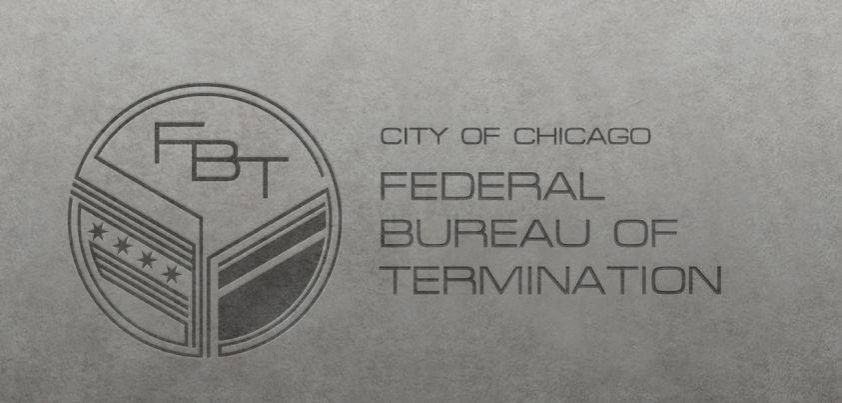 Kurt Vonnegut liked to write about imaginary worlds. Some time ago we featured Harrison Bergeron, another Vonnegut story. This was about a dystopian world; a world where most people are unhappy and afraid because they are not treated fairly. In 2BR02B, Earth at first appears perfect. There are no poor, no slums, no prisons, no wars. There is no insanity, disability or disease. Even aging has been cured. Everything is wonderful… unless you want to bring a child into the world. As the story develops, we soon see that this utopian sounding future masks yet another dystopian society. More…
Kurt Vonnegut liked to write about imaginary worlds. Some time ago we featured Harrison Bergeron, another Vonnegut story. This was about a dystopian world; a world where most people are unhappy and afraid because they are not treated fairly. In 2BR02B, Earth at first appears perfect. There are no poor, no slums, no prisons, no wars. There is no insanity, disability or disease. Even aging has been cured. Everything is wonderful… unless you want to bring a child into the world. As the story develops, we soon see that this utopian sounding future masks yet another dystopian society. More…
Zero Hour
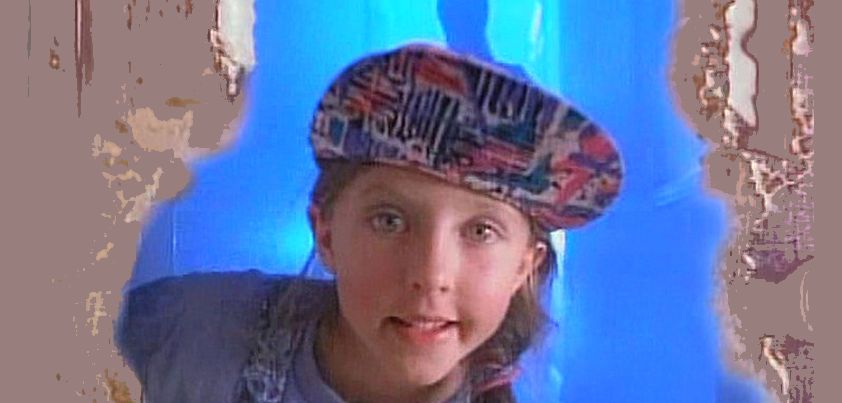 This chilling story by Ray Bradbury involves an inattentive mother, a feisty seven-year-old girl, and her imaginary friend Drill. Throughout most of the story, the girl leads her friends in a construction game following instructions she receives from Drill. Her mother later learns that groups of similar-aged children across America are playing the same game. Its name is “Invasion”, and for her the climax comes in a single word: Peekaboo. The major theme of the story is complacency. The mother senses something is wrong, but doesn’t act until too late. Other themes: human smugness (We’re impregnable!), child innocence/impressionability, manipulation/reward, violence. More…
This chilling story by Ray Bradbury involves an inattentive mother, a feisty seven-year-old girl, and her imaginary friend Drill. Throughout most of the story, the girl leads her friends in a construction game following instructions she receives from Drill. Her mother later learns that groups of similar-aged children across America are playing the same game. Its name is “Invasion”, and for her the climax comes in a single word: Peekaboo. The major theme of the story is complacency. The mother senses something is wrong, but doesn’t act until too late. Other themes: human smugness (We’re impregnable!), child innocence/impressionability, manipulation/reward, violence. More…
I Have No Mouth and I Must Scream
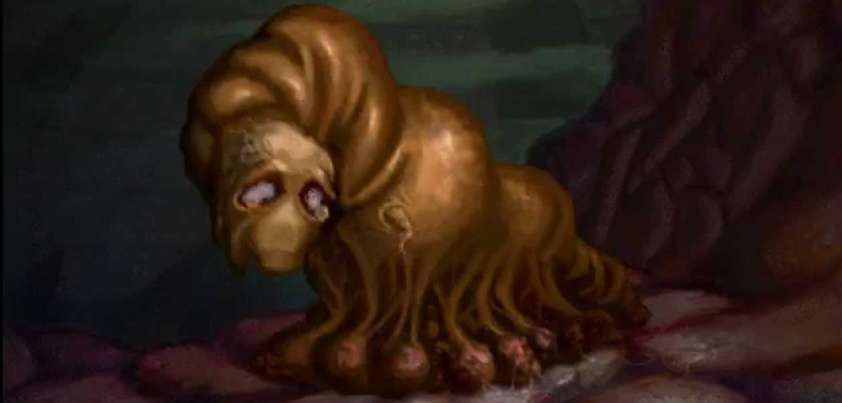 This story from Harlan Ellison is an example of New Wave Science Fiction, a literary movement that flourished in the 1960s and 1970s. Distinguishing features are storylines that are intellectually implausible, and disturbing themes that would not normally be included in traditional science fiction. A sentient supercomputer has destroyed the human race other than five ‘specimens’. With no creative outlet for its powers, it has kept these alive and subjected them to torturous challenges for over one hundred years as revenge against humanity for creating it. Themes: humanity vs. technology, godhood, individualism, revenge, cruelty, violence, misogyny, self-sacrifice More…
This story from Harlan Ellison is an example of New Wave Science Fiction, a literary movement that flourished in the 1960s and 1970s. Distinguishing features are storylines that are intellectually implausible, and disturbing themes that would not normally be included in traditional science fiction. A sentient supercomputer has destroyed the human race other than five ‘specimens’. With no creative outlet for its powers, it has kept these alive and subjected them to torturous challenges for over one hundred years as revenge against humanity for creating it. Themes: humanity vs. technology, godhood, individualism, revenge, cruelty, violence, misogyny, self-sacrifice More…
Harrison Bergeron
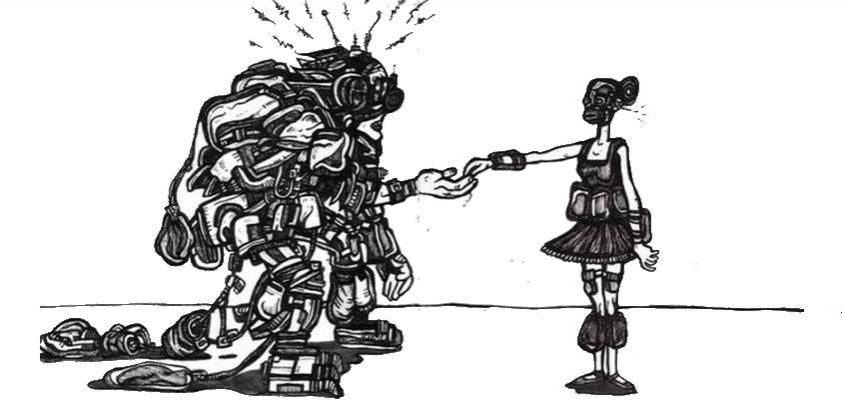 This story by science-fiction writer Kurt Vonnegut is about a future world in which the government tries to make everyone equal. The strong must carry heavy weights, the beautiful must wear masks, and the clever are subjected to distracting sounds to stop them thinking clearly. As is usual in totalitarian worlds, those in power are excused from all this… especially the Handicapper General and her “H-G” men. A powerful, gifted fourteen-year-old boy tries to change things as his parents watch on in confusion. Themes: control (forced conformity through oppression and violence), identity (equality vs. individuality), rebellion, media power. More…
This story by science-fiction writer Kurt Vonnegut is about a future world in which the government tries to make everyone equal. The strong must carry heavy weights, the beautiful must wear masks, and the clever are subjected to distracting sounds to stop them thinking clearly. As is usual in totalitarian worlds, those in power are excused from all this… especially the Handicapper General and her “H-G” men. A powerful, gifted fourteen-year-old boy tries to change things as his parents watch on in confusion. Themes: control (forced conformity through oppression and violence), identity (equality vs. individuality), rebellion, media power. More…
The Veldt
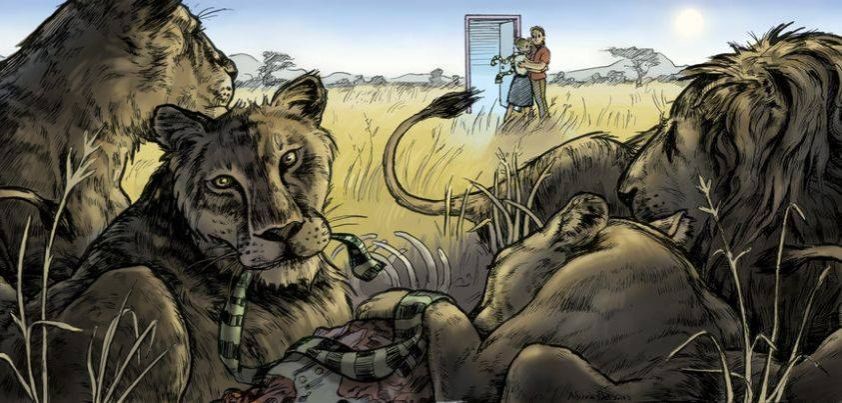 In this chilling story by Ray Bradbury, frantic parents who try to rein in their spoiled children by shutting down the hi-tech games room in their “HappyLife” home become a “HappyMeal”. Although written in 1950 to question the rising influence of television, the story serves as a warning to modern parents who let their children build their lives around social networking and/or game play. The story’s major theme is the alienation, dehumanization, breakdown of family values that can arise in a household through over-reliance on technology. Other themes: consumerism, poor parenting, illusion vs. reality, dystopia. More…
In this chilling story by Ray Bradbury, frantic parents who try to rein in their spoiled children by shutting down the hi-tech games room in their “HappyLife” home become a “HappyMeal”. Although written in 1950 to question the rising influence of television, the story serves as a warning to modern parents who let their children build their lives around social networking and/or game play. The story’s major theme is the alienation, dehumanization, breakdown of family values that can arise in a household through over-reliance on technology. Other themes: consumerism, poor parenting, illusion vs. reality, dystopia. More…
A Boy and His Dog
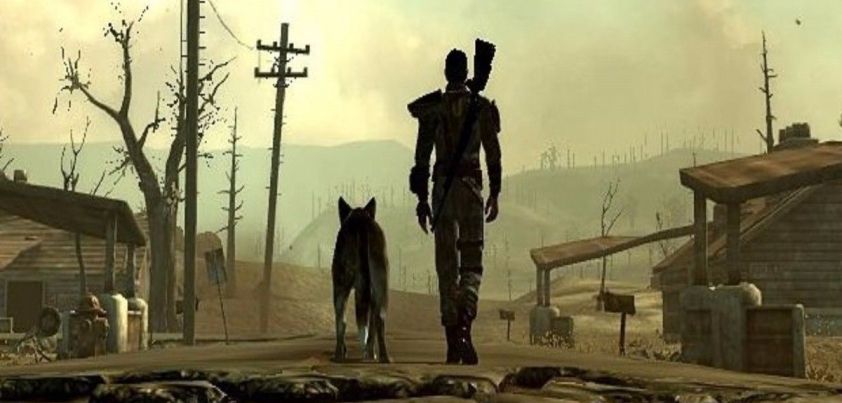 Written at the peak of the Cold War, this Harlan Ellison story takes place in a dystopic, post-apocalyptic world. ‘Civilized’ people have retreated to secure underground cities, leaving the desolate surface to ‘solo’ wanderers and lawless gangs who survive by foraging, violence and murder. The plot involves a young solo, his genetically manipulated telepathic dog, and an attractive young woman from the underground who almost comes between them. Despite the title, there is nothing “boyish” about the protagonist given what he and the girl get up to! Themes: anarchy, division, violence, loyalty, manipulation, betrayal, love. More…
Written at the peak of the Cold War, this Harlan Ellison story takes place in a dystopic, post-apocalyptic world. ‘Civilized’ people have retreated to secure underground cities, leaving the desolate surface to ‘solo’ wanderers and lawless gangs who survive by foraging, violence and murder. The plot involves a young solo, his genetically manipulated telepathic dog, and an attractive young woman from the underground who almost comes between them. Despite the title, there is nothing “boyish” about the protagonist given what he and the girl get up to! Themes: anarchy, division, violence, loyalty, manipulation, betrayal, love. More…
There Will Come Soft Rains
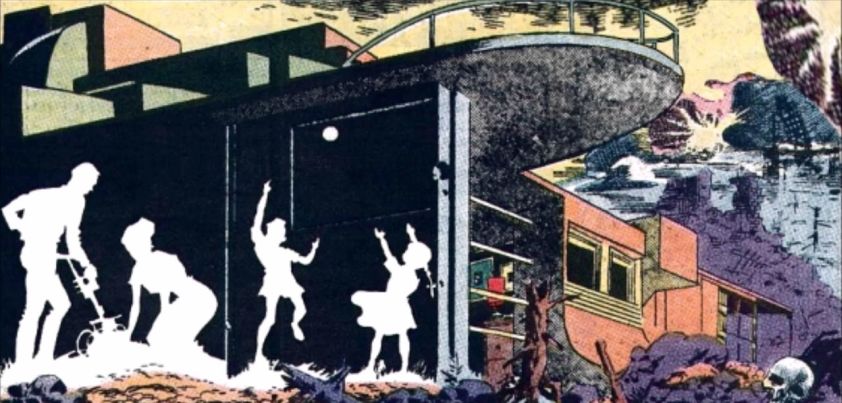 This famous science-fiction story from Ray Bradbury chronicles the last day in the ‘life’ of an automated house that has survived nuclear war. Although the house’s inhabitants are dead, represented by shadows on the outside walls, it has continued its daily cycle of programmed activity. Major themes include two warnings: the danger of nuclear war, and taking technology too far. In replacing almost all human tasks in their daily life, the householders were dependent on technology. Ironically, that same technology built the bombs that destroyed them. Other themes: death (the dog, house and humankind), nature (the only survivor), dystopia. More…
This famous science-fiction story from Ray Bradbury chronicles the last day in the ‘life’ of an automated house that has survived nuclear war. Although the house’s inhabitants are dead, represented by shadows on the outside walls, it has continued its daily cycle of programmed activity. Major themes include two warnings: the danger of nuclear war, and taking technology too far. In replacing almost all human tasks in their daily life, the householders were dependent on technology. Ironically, that same technology built the bombs that destroyed them. Other themes: death (the dog, house and humankind), nature (the only survivor), dystopia. More…
The Minority Report
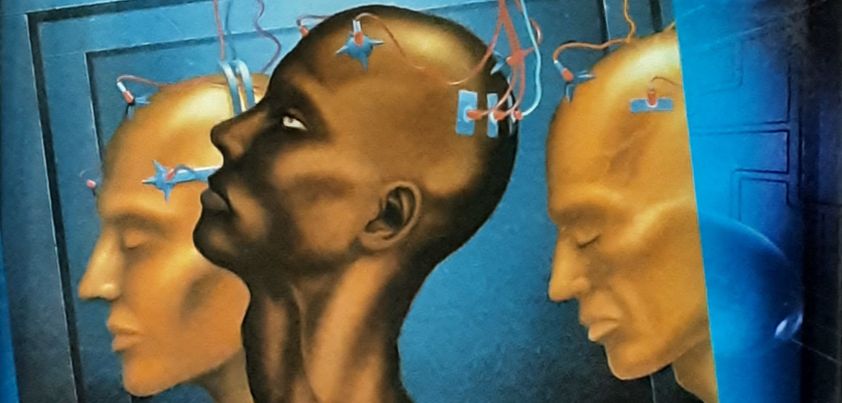 Philip Dick’s The Minority Report is a dystopian adventure story set in a society that takes policing a step even further than the infamous “Thought Police” in George Orwell’s Nineteen Eighty-Four. Its premise is that the authorities have found a way to identify a crime and imprison the would-be perpetrator before he or she even thinks of committing it. Their methods in doing this are disturbing to say the least. Themes: (general) free will vs. fate, injustice, trust vs. paranoia, self-fulfilling prophesy, extrajudicial murder; (for the “precogs”) violation of human rights, enslavement, degradation. More…
Philip Dick’s The Minority Report is a dystopian adventure story set in a society that takes policing a step even further than the infamous “Thought Police” in George Orwell’s Nineteen Eighty-Four. Its premise is that the authorities have found a way to identify a crime and imprison the would-be perpetrator before he or she even thinks of committing it. Their methods in doing this are disturbing to say the least. Themes: (general) free will vs. fate, injustice, trust vs. paranoia, self-fulfilling prophesy, extrajudicial murder; (for the “precogs”) violation of human rights, enslavement, degradation. More…